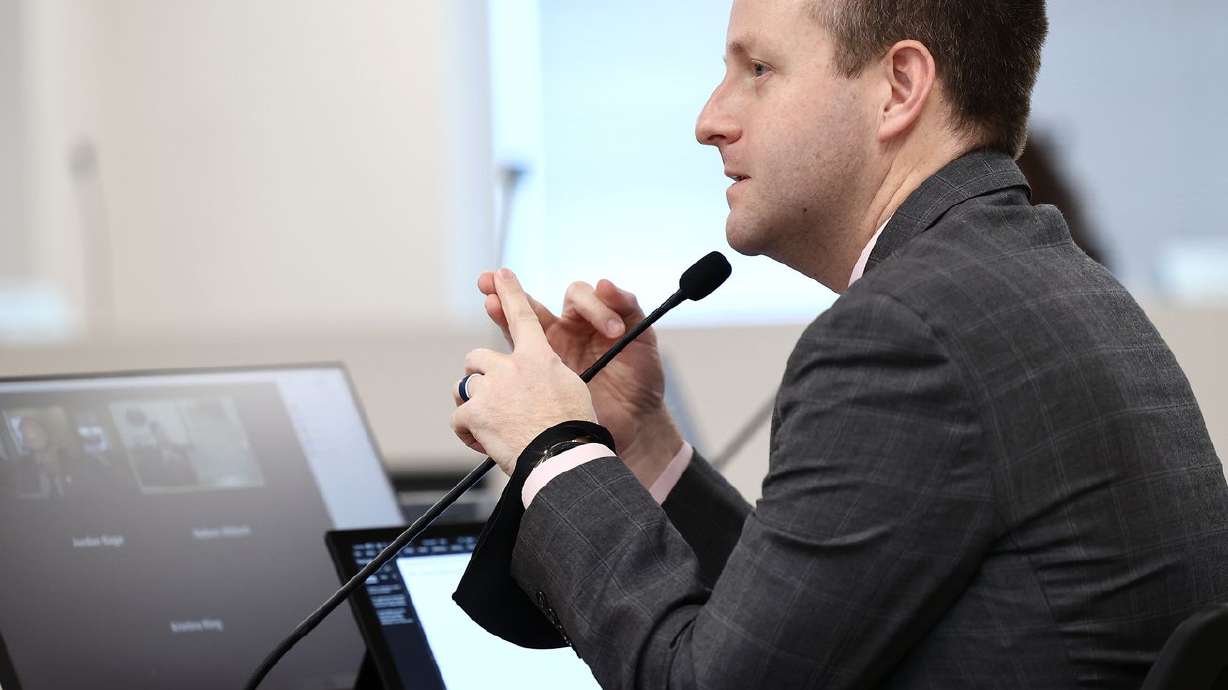Estimated read time: 3-4 minutes
This archived news story is available only for your personal, non-commercial use. Information in the story may be outdated or superseded by additional information. Reading or replaying the story in its archived form does not constitute a republication of the story.
SALT LAKE CITY — A Utah lawmaker wants the state to consider legalizing psychedelic drugs — sometimes referred to as "magic mushrooms" — for those with certain mental health issues.
"We need effective tools to treat mental illness. If psychedelics can be helpful and safely administered, we need them in our toolbox," bill sponsor Rep. Brady Brammer, R-Highland, said in a statement to KSL.com.
Brammer noted that Johns Hopkins University in 2000 received federal regulatory approval to begin researching psychedelics. Since 2006, the organization has published numerous articles on its research that show the potential effectiveness of psychedelics in treating PTSD, severe depression, addiction, and distress caused by life-threatening diseases, Brammer said in the statement.
"Utah has some of the finest researchers in the areas of psychiatry and neurosciences at Huntsman Mental Health Institute," he added. "This bill seeks to leverage that expertise, along with other experts grappling with mental illness, to review the research results, and if appropriate, make recommendations on how to safely administer these therapeutics under the care of qualified physicians."
Brammer's bill HB167 would create a Mental Illness Psychotherapy Drug Task Force that would "study and make recommendations on drugs that may assist in treating mental illness."
The executive director of the Utah Department of Health and the chief executive officer of the Huntsman Mental Health institute would serve as chairmen of the task force, according to the bill. The task force would also include a licensed psychiatrist; a licensed psychologist; a representative from the Utah Medical Association, someone who researches and studies neuroscience and mental health; a health system representative; and a patient who is knowledgeable about using a psychotherapy drug, among others.
The group would be tasked with researching and recommending the types of conditions for which psychedelic drugs could be used as therapy, the appropriate drug and dosage, appropriate licenses and credentials for recommending the drug, and other requirements.
Brammer has been working with Utah-based libertarian think tank Libertas Institute and the Utah Patients Coalition, both of which were involved in Utah's process to legalize medical cannabis for certain health conditions.
Connor Boyack, Libertas Institute president, said Saturday the lawmaker approached the group with the idea to propose legalizing psychedelics as a way to fight Utah's mental health crisis.
Although not specifically mentioned in the bill, Boyack said the psychoactive compound in mushrooms called psilocybin is likely the "main ringleader" of drugs that would be considered by the task force.
"Utah being what it is, we're near or at the bottom for mental illness rankings, shortage of psychiatrists, a lot of these therapies don't work and so forth. So this shows significant promise, and I know people personally who have — after years of pharmaceuticals — have used psilocybin with substantial success," Boyack said, adding that those people were able to stop using pharmaceuticals.
He said that Canada has legalized psilocybin. Meanwhile, Oregon and the city of Denver have decriminalized it. In the U.S., psilocybin is a Schedule I drug and illegal to cultivate or possess.
Boyack said should the bill pass, the task force would meet over the summer to research the issue and then return to the Legislature with recommendations late this year.
As the Food and Drug Administration has granted the drug research status, Boyack questioned the need to wait many years for the federal government to "catch up" on legalizing it, or make it available for patients who would benefit from it earlier.
It's unclear how other legislators might approach the bill, Boyack said. When asked whether he thinks the passing and ensuing years of work on Utah's medical marijuana bill might have changed how some view psychoactive drugs, Boyack said he does not know whether that has had a "spillover effect."
"Maybe it will be for others, but this is such a new issue, and we haven't really talked to many other legislators about it," he added.
Correction: A previous version said Colorado and California have legalized psilocybin. It's actually Denver and Oregon, and they have decriminalized it.










